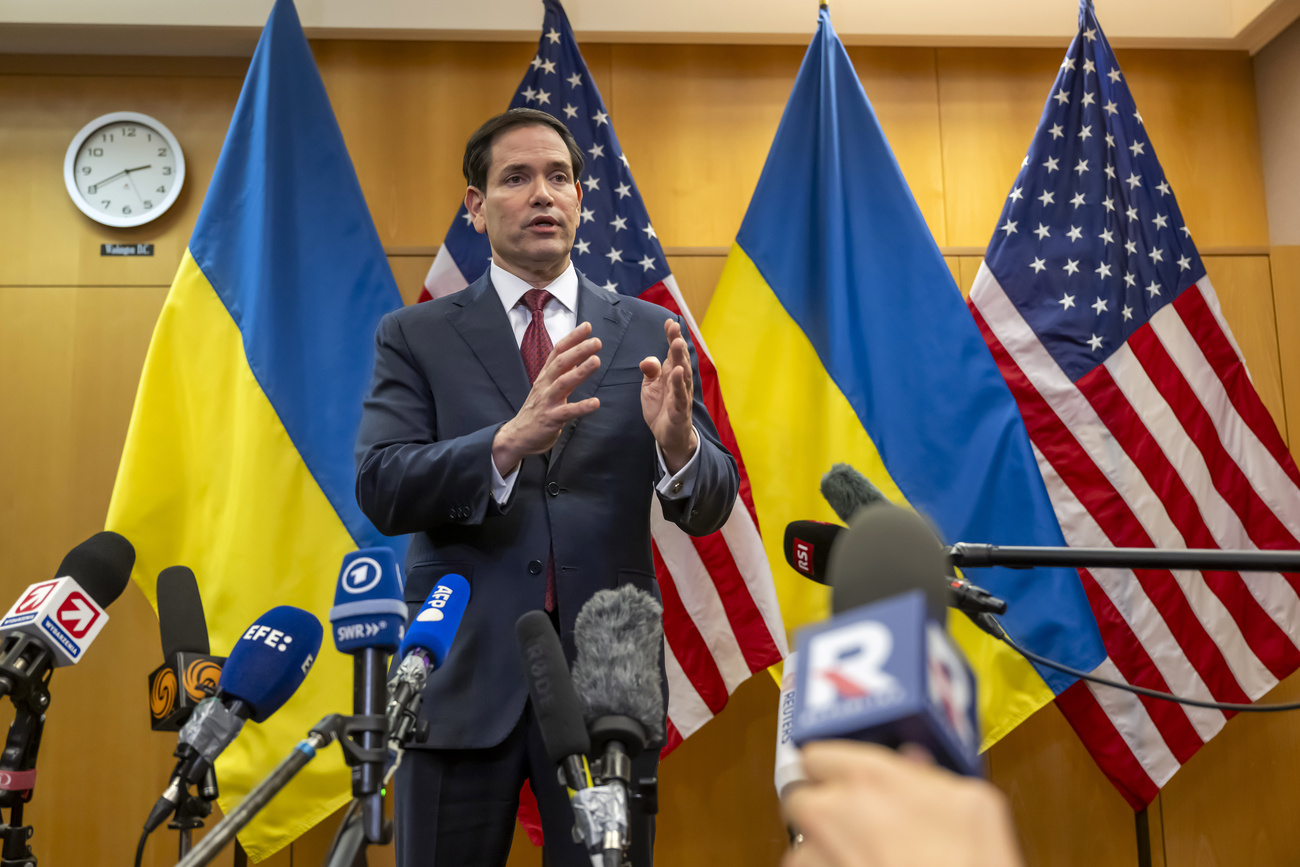
Palestinian unrest hits Swiss aid projects

The deteriorating situation in the Palestinian territories is forcing the Swiss Agency for Development and Cooperation (SDC) to revise its aid operations.
Mario Carera, head of the SDC’s Gaza and West Bank office, says a major problem is the shortage of medicine in Palestinian hospitals – something the Swiss are trying to address.
On Tuesday Palestinian Prime Minister Ismail Haniyeh stressed that the occupied territories were not about to collapse into chaos. His comments follow clashes between armed troops of the Hamas-led government and security forces loyal to Palestinian leader Mahmoud Abbas.
swissinfo: Is the situation the same in both the Gaza Strip and the West Bank?
M.C.: Pretty much. In Gaza the population density is extremely high – around 1.4 million people in an area little bigger than canton Geneva and where more than half the people rely on food aid.
What’s more, Gaza is almost totally sealed off. People live in a kind of open prison and it is there that most of the armed incidents are taking place.
In the West Bank the atmosphere is less oppressive. Although the food situation there is difficult, families can still make a living from farming in villages, even if access to markets is tricky because of the numerous checkpoints.
swissinfo: What impact is all this having on SDC projects?
M.C.: We are experiencing real problems in running our programmes. Our humanitarian activities are conducted principally via the International Committee of the Red Cross, Unwra and the WFP, and, as I have mentioned, these agencies are having problems.
Furthermore, hospitals are beginning to run out of medicine and Palestinian public radio has already appealed to the population not to go to hospital unless it is a real emergency.
We are in the process of examining how we can support the purchase of drugs, either directly or through our Palestinian partners such as the Red Cross.
We also run a number of social programmes, but many people have had to stop attending because they can no longer afford the transport costs.
swissinfo: In view of the situation, are you going to have to change the way you work?
M.C.: We are evaluating, along with all our partners, the new challenges we face on the ground and how we should adapt our operations accordingly.
We have also increased security for our staff and cut travel to a minimum as a result of the rise in violence, which has greatly affected our ability to monitor our programmes.
In addition, we are working very closely with our colleagues from northern Europe to provide support for Israeli and Palestinian non-governmental organisations (NGOs).
We are placing particular emphasis on human rights NGOs and those promoting good governance, especially on the Palestinian side. For if the Palestinian Authority collapses, we would be in a very serious situation.
swissinfo-interview: Frédéric Burnand in Geneva
According to the Swiss foreign ministry, an end to the Middle East crisis depends on:
Establishment of a lasting peace founded on UN Security Council resolutions 242, 338, 1397 and 1515, and all the accords agreed by the conflict parties.
Recognition of Israel’s right to exist, in particular its right to security within internationally recognised borders.
Recognition of the right of the Palestinian people to self-governance and the establishment of a viable state in line with UN Security Council resolution 1397.
A just, global and negotiated solution to the problem of Palestinian refugees.
A negotiated ruling on the final status of Jerusalem at the end of which the western and eastern parts would become the capitals of Israel and the future Palestinian state respectively.

In compliance with the JTI standards
More: SWI swissinfo.ch certified by the Journalism Trust Initiative





























You can find an overview of ongoing debates with our journalists here . Please join us!
If you want to start a conversation about a topic raised in this article or want to report factual errors, email us at english@swissinfo.ch.